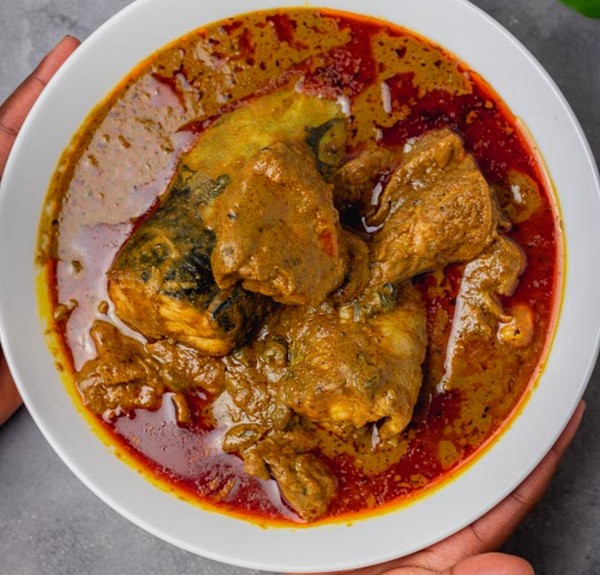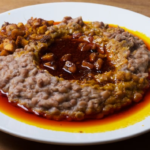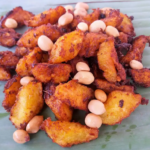West African cuisine is known for its bold flavors and unique combinations of ingredients. One dish that perfectly embodies this culinary tradition is the West African Banga Soup, a rich and flavorful palm nut soup that tantalizes the taste buds with every spoonful. This beloved dish is a true representation of West African culture and its vibrant culinary heritage.
Banga Soup, also known as Ofe Akwu in Nigeria and Palm Nut Soup in other West African countries, is a traditional soup made from the extract of palm fruits. The palm fruit extract is the key ingredient that gives this soup its distinctive flavor and creamy texture. The process of making Banga Soup involves extracting the oil-rich pulp from palm fruits and blending it with a variety of spices, vegetables, and meat or fish.
One of the highlights of Banga Soup is its rich and velvety consistency. The palm fruit extract is cooked slowly to allow the flavors to meld together and thicken the soup naturally. This slow cooking process is what creates a luscious, silky base that coats the ingredients and infuses them with a delightful palm nut flavor.
The main protein component of Banga Soup varies depending on personal preferences and regional variations. It can be made with chicken, beef, goat meat, or fish, with each option bringing its own unique taste to the dish. The meat or fish is usually seasoned with a blend of spices and simmered in the palm nut extract until tender and flavorful.
To complement the rich and hearty base, a variety of vegetables are added to Banga Soup. Common additions include sliced onions, bitter leaves, scent leaves, and sometimes okra. These vegetables not only add color and texture but also contribute their distinct flavors to the overall profile of the soup.
The combination of the palm nut extract, meat or fish, and vegetables creates a harmonious medley of flavors in Banga Soup. The nutty, slightly sweet taste of the palm fruits is balanced by the savory notes of the meat or fish and the earthy undertones of the vegetables. The result is a complex and well-rounded flavor profile that is both comforting and satisfying.
Banga Soup is often enjoyed with a side of fufu, a staple West African food made from cassava, plantains, or yams. The fufu is used to scoop up the soup, allowing the flavors to mingle and creating a wholesome and fulfilling meal experience. The combination of the smooth fufu and the rich Banga Soup is a match made in culinary heaven.
In addition to its delicious taste, Banga Soup also boasts several nutritional benefits. Palm fruits are a good source of vitamins A and E, as well as healthy monounsaturated fats. The vegetables and proteins in the soup provide essential nutrients like protein, fiber, and various vitamins and minerals, making it a well-rounded and nourishing dish.
West African Banga Soup is more than just a culinary delight; it is a cultural icon that brings people together through its flavors and traditions. It is a dish that has been passed down through generations, carrying with it the history and heritage of the region. Whether enjoyed in a bustling market or at a family gathering, Banga Soup is a testament to the richness and diversity of West African cuisine.
In conclusion, West African Banga Soup is a remarkable dish that embodies the essence of West African cooking. Its rich and flavorful palm nut base, combined with tender meat or fish and a medley of vegetables, creates a culinary masterpiece that delights the senses. From its velvety texture to its harmonious blend of flavors, Banga Soup is a true celebration of West African culinary heritage. So, the next time you have the opportunity, indulge in the flavors of this delicious soup and embark on a culinary journey to West Africa.








